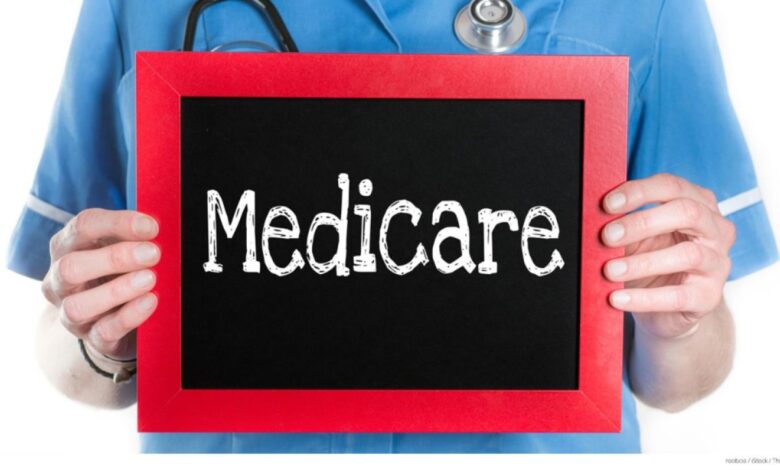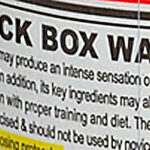List Of Drugs Covered By Medicare Part B (Medical Insurance)

The Medicare program covers most persons age 65 or older and consists of four related health insurance plans: a hospital insurance plan (called Part A); a supplementary medical insurance plan (Part B); and two privately run plans, Medicare Advantage (Part C) and prescription drug coverage (Part D).
Medicare is complicated and can be confusing to sort through. To make it easier, the program has been broken down into four basic parts that include coverage for everything from hospital care to doctor visits to prescription drugs.
Medicare is complicated and can be confusing to sort through. To make it easier, the program has been broken down into four basic parts that include coverage for everything from hospital care to doctor visits to prescription drugs.
Part B of Medicare covers doctor visits, lab tests, diagnostic screenings, medical equipment, ambulance transportation and other outpatient services.
Unlike Part A, Part B involves more costs, and you may want to defer signing up for it if you are still working and have insurance through your job or are covered by your spouse’s health plan. But if you don’t have other insurance and don’t sign up for Part B when you first enroll in Medicare, you’ll likely have to pay a higher monthly premium for as long as you’re in the program.
The federal government sets the Part B monthly premium, which is $148.50 for 2021. It may be higher if your income is more than $88,000. You’ll also be subject to an annual deductible, set at $203 for 2021. And you’ll have to pay 20 percent of the bills for doctor visits and other outpatient services. If you are collecting Social Security, the monthly premium will be deducted from your monthly benefit.
Medicare Part B covers a limited number of outpatient prescription drugs under limited conditions. Usually, Part B covers drugs you wouldn’t usually give to yourself, like those you get at a doctor’s office or hospital outpatient setting.
Here are some examples of drugs Part B covers:
- Drugs used with an item of durable medical equipment (DME): Medicare covers drugs infused through DME, like an infusion pump or a nebulizer, if the drug used with the pump is reasonable and necessary.
- Some antigens: Medicare helps pay for antigens if they’re prepared by a doctor and are given by a properly instructed person (who could be you, the patient) under appropriate supervision.
- Injectable osteoporosis drugs: Medicare helps pay for an injectable drug if you’re a woman with osteoporosis who meets the criteria for the Medicare home health benefit and has a bone fracture that a doctor certifies was related to post-menopausal osteoporosis. A doctor must certify that you can’t give yourself the injection or learn how to give yourself the drug by injection. Medicare won’t cover the home health nurse or aide to provide the injection unless family and/or caregivers are unable or unwilling to give you the drug by injection.
- Erythropoiesis-stimulating agents: Medicare helps pay for erythropoietin by injection if you have End-Stage Renal Disease (Esrd) or you need this drug to treat anemia related to certain other conditions.
- Blood clotting factors: Medicare helps pay for clotting factors you give yourself by injection, if you have hemophilia.
- Injectable and infused drugs: Medicare covers most of these when given by a licensed medical provider because they aren’t usually self administered.
- Oral End-Stage Renal Disease (ESRD) drugs: Medicare helps pay for some oral ESRD drugs if the same drug is available in injectable form and the Part B ESRD benefit covers it.
| Note |
| Part B covers calcimimetic medications under the ESRD payment system, including the intravenous medication Parsabiv, and the oral medication Sensipar. Your ESRD facility is responsible for giving you these medications. They can give them to you at their facility, or through a pharmacy they work with. You’ll need to work with your ESRD facility and your doctor to find out: Where you’ll get these medications How much you’ll pay |
- Parenteral and enteral nutrition (intravenous and tube feeding): Medicare helps pay for certain nutrients if you can’t absorb nutrition through your intestinal tract or take food by mouth.
- Intravenous Immune Globulin (IVIG) provided in home: Medicare helps pay for IVIG if you have a diagnosis of primary immune deficiency disease. A doctor must decide that it’s medically appropriate for the IVIG to be given in your home. Part B covers the IVIG itself. But, Part B doesn’t pay for other items and services related to you getting the IVIG at home.
- Shots (vaccinations): Medicare covers flu shots, pneumococcal shots, Hepatitis B shots, and some other vaccines when they’re related directly to the treatment of an injury or illness.
- Transplant / immunosuppressive drugs. Medicare covers transplant drug therapy if Medicare helped pay for your organ transplant.
Part D covers transplant drugs that Part B doesn’t cover. If you have ESRD and Original Medicare, you may join a Medicare drug plan.
If you’re entitled to Medicare only because of ESRD, your Medicare coverage ends 36 months after the month of the kidney transplant.
However, if you’re entitled to Medicare because of your age or disability, Medicare will pay for your transplant drugs with no time limit if your transplant was paid for by Medicare or private insurance that paid primary to your Medicare Part A (Hospital Insurance) coverage.
Transplant drugs can be very costly. If you’re worried about paying for them after your Medicare coverage ends, talk to your doctor, nurse, or social worker. There may be other ways to help you pay for these drugs.
- Oral cancer drugs: Medicare helps pay for some oral cancer drugs you take by mouth if the same drug is available in injectable form or the drug is a prodrug of the injectable drug. A prodrug is an oral form of a drug that, when ingested, breaks down into the same active ingredient found in the injectable drug. As new oral cancer drugs become available, Part B may cover them. If Part B doesn’t cover them, Part D does.
- Oral anti-nausea drugs: Medicare helps pay for oral anti-nausea drugs you use as part of an anti-cancer chemotherapeutic regimen if they’re administered before, at, or within 48 hours of chemotherapy or are used as a full therapeutic replacement for an intravenous anti-nausea drug.
- Self-administered drugs in hospital outpatient settings: Medicare may pay for some self-administered drugs. Medicare pays for these drugs if you need them for the hospital outpatient services you’re getting.





